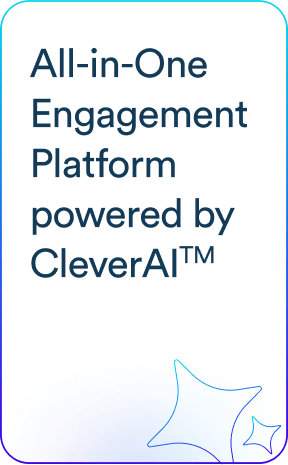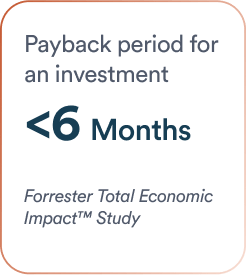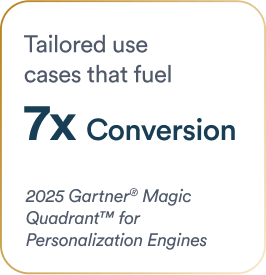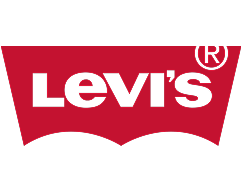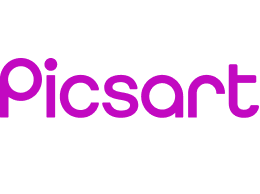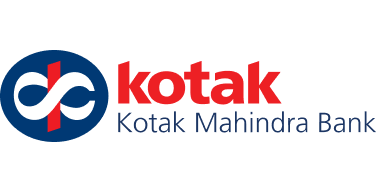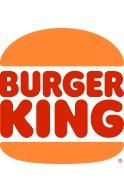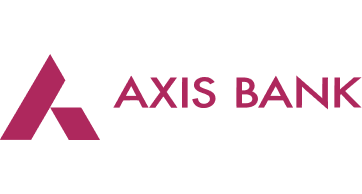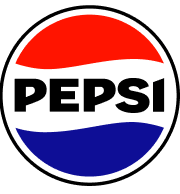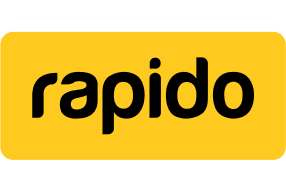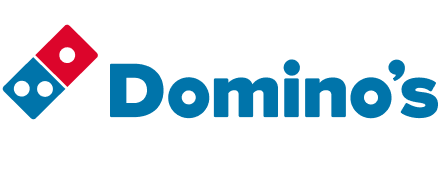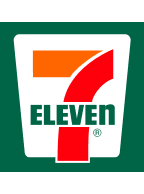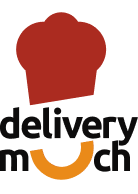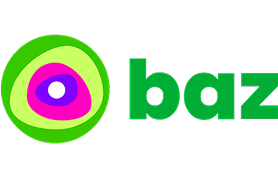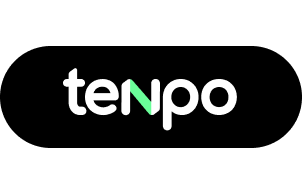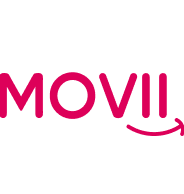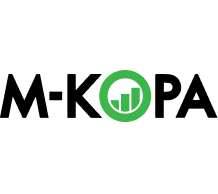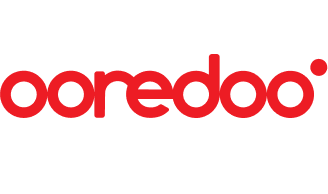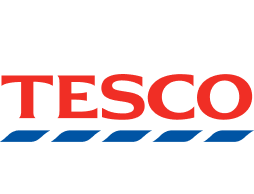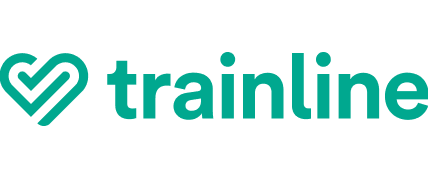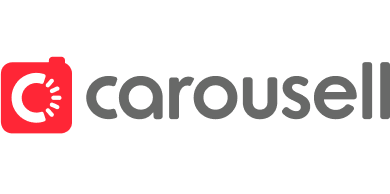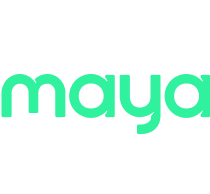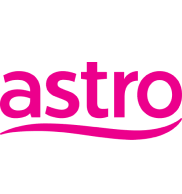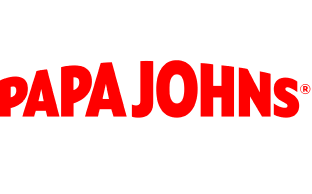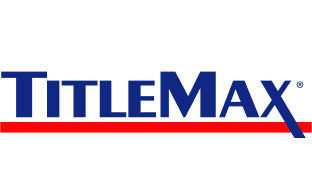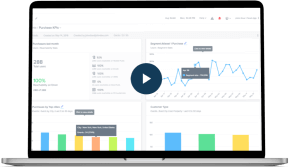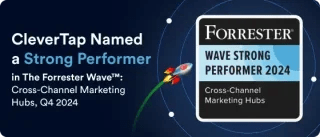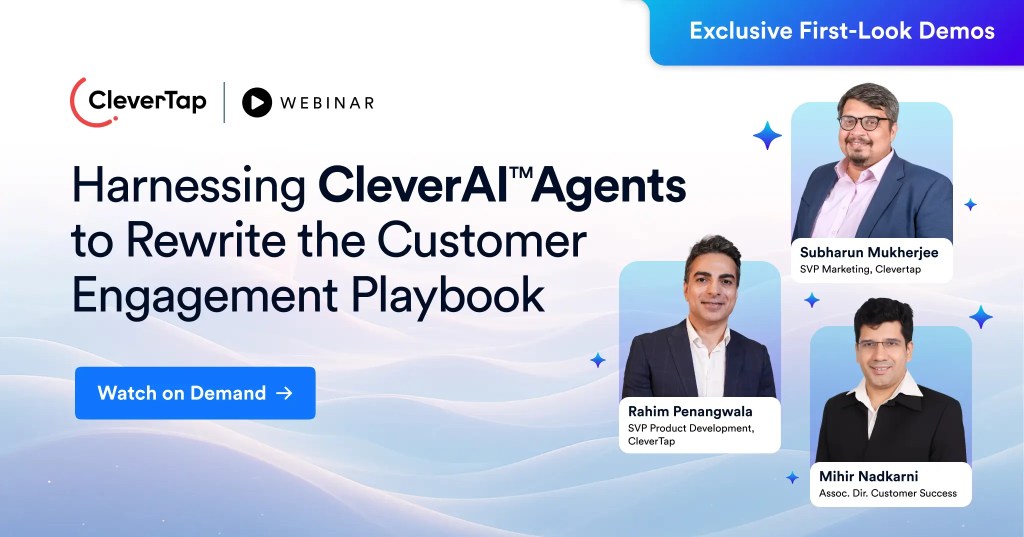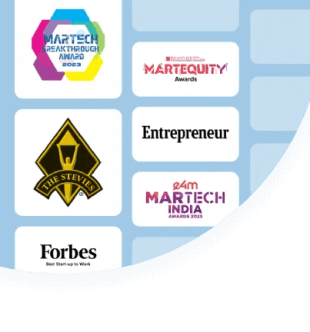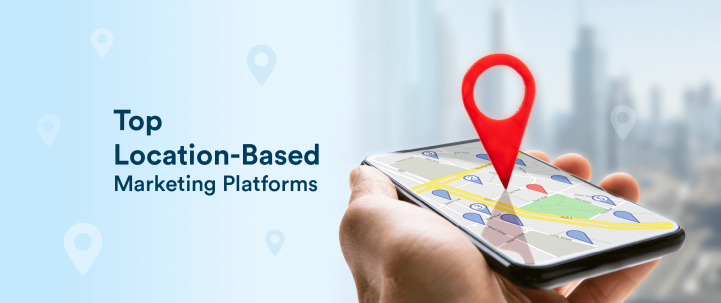Explore the top 6 location-based marketing platforms that can enhance your marketing strategy. This blog compares features, pricing, and user experiences to help businesses make informed purchase decisions.
Location-based marketing has become a pivotal strategy for businesses aiming to engage customers more effectively. By using geographic data, companies can deliver personalized content, promotions, and notifications directly to users based on their physical location.
Location-based marketing companies help businesses enhance customer engagement and drive conversions, making it essential for companies to incorporate location-based marketing technology into their marketing plans.
The Best Location-Based Marketing Platforms
Here’s a comprehensive list of the top location-based marketing platforms.
1. CleverTap
CleverTap is a powerful customer engagement platform that offers location-based marketing features like geofencing and personalized notifications. It provides businesses with tools to segment audiences based on location and behavior, allowing for targeted messaging.
CleverTap supports various geofencing capabilities, including customizable radius settings, multiple geofence configurations, and integration with analytics to track user interactions. This enables businesses to tailor their marketing strategies based on user behavior and location data.
CleverTap’s geofencing technology harnesses GPS location data to enable precise geographical targeting. This feature allows businesses to create virtual boundaries that trigger personalized communications with their mobile users across both Android and iOS platforms. Each geofence cluster supports up to 100 distinct zones, offering flexible coverage options from small retail locations to large metropolitan areas. The feature is designed to help brands engage customers in real time, providing timely and relevant notifications that can influence purchasing decisions.
This functionality facilitates the delivery of personalized push notifications and in-app messages to users when they enter or exit designated zones, enhancing customer engagement and driving foot traffic to physical locations.
Through CleverTap’s intuitive dashboard, marketers can establish geofences anywhere globally, enabling truly international location-based campaigns. The platform excels in real-time engagement, delivering messages the moment users cross geofence boundaries, while also supporting scheduled follow-up communications hours or days after the initial interaction.
The system’s sophisticated location analytics engine automatically captures and processes user movement data as they interact with defined geofences. This valuable information serves dual purposes: powering retargeting initiatives and generating detailed insights about user behavior patterns and location preferences. Businesses can use these analytics to understand which physical locations drive the most engagement and optimize their marketing strategies accordingly.
Pros
- Global Coverage: CleverTap enables businesses to create virtual boundaries anywhere in the world through their dashboard. This flexibility allows companies to manage location-based campaigns at any scale, from local to international operations.
- Cross-Platform Compatibility: The location-based marketing platform delivers seamless performance across both Android and iOS devices, ensuring businesses can reach their entire mobile user base without platform-specific limitations or the need for separate solutions.
- Customizable Message Timing: Marketers can choose between instant engagement when users cross geofence boundaries or schedule delayed follow-ups hours or days later, allowing for strategic timing of communications based on user behavior patterns.
- Location Analytics: The platform automatically collects and analyzes user movement data within geofences, providing valuable insights into customer behavior patterns and location preferences.
- Retargeting Capabilities: By capturing detailed location interaction data, CleverTap enables sophisticated retargeting campaigns based on users’ physical movements and location history, helping businesses create more personalized and effective marketing strategies.
- Do Not Disturb Settings: This feature allows users to set specific times when notifications should not be sent, ensuring a respectful communication approach. This helps improve customer experience by avoiding intrusive messages during off-hours or sensitive times. By implementing this option, brands can maintain a positive relationship with their audience while optimizing engagement during appropriate periods.
Cons
- Dependence on GPS Accuracy: The effectiveness of geofencing relies heavily on GPS accuracy, which can vary based on the user’s device and environment.
Pricing
- Essentials Plan: CleverTap’s pricing starts at $75/month. This plan is ideal for startups with up to 5,000 Monthly Active Users (MAU).
- Advanced Plan: Pricing on request. This plan includes hyper-personalization, push amplification, advanced analytics, and premium engagement channels.
- Cutting Edge Plan: Pricing on request. This plan comes with AI-driven predictions powered by Clever.AI and campaign intelligence tools.
2. Emarsys
Emarsys is an omnichannel customer engagement platform that empowers marketers to create, launch, and scale personalized cross-channel campaigns. The location-based marketing software accelerates value delivery, enhances 1:1 customer experiences, and quickly generates measurable results by aligning desired outcomes with effective omnichannel strategies from leading brands in various industries.
Pros
- Geolocation Segmentation: Creates targeted segments based on users’ geographic locations.
- Personalized Messaging: Enables tailored communications that resonate with customers in specific areas.
- Location Definition: Defines segments by countries, cities, or custom geofences for precise targeting.
- Dynamic Segmentation: Supports real-time updates as users move in and out of defined areas.
- Enhanced Marketing Strategies: Leverages geolocation data to improve marketing effectiveness and drive higher conversion rates.
Cons
- Some users find the pricing model complex, which may not be ideal for small businesses with limited budgets.
- New users may experience a slight learning curve due to the platform’s comprehensive features.
Pricing
Emarsys offers custom pricing based on business needs, making it essential for interested users to contact their sales team for specific quotes.
3. Groundtruth
GroundTruth is an omnichannel ad platform that offers location-based marketing designed to enhance consumer engagement through precise targeting. The location-based marketing technology features on-premise targeting, which allows businesses to identify whether consumers are in-store or nearby, facilitating immediate marketing actions.
Pros
- On-Premise Targeting: Offers precise geo-targeting, allowing businesses to determine if a consumer is in-store, in a parking lot, or nearby, enabling immediate influence on consumer behavior.
- Proximity Targeting: Engages consumers in real-time around specific locations by defining geofences, facilitating timely messaging and behavioral influence.
- Neighborhood Targeting: Targets audiences within unique geographical boundaries based on visitation patterns, providing a scalable and customized marketing approach.
- Customizable Features: Includes options for weather targeting and audience segmentation to enhance marketing strategies.
Cons
- May require a learning curve for effective use.
- Some users report inaccuracy in targeting and optimization of campaigns.
Pricing
GroundTruth offers two primary pricing models for geofencing campaigns: Cost per mille (CPM) and cost per visit (CPV)
CPM Pricing Model
- Typical Range: $3.50 to $15 for mobile and desktop campaigns; $20 to $50 for Connected TV (CTV) campaigns.
- Minimum Price: The minimum CPM at GroundTruth is $3.50, with recommendations of $10 to $15 for event or short flight campaigns.
- Optimal Pacing: For video campaigns, a CPM of $7 to $12 is suggested.
CPV Pricing Model
- Performance-Based: Marketers only pay for ads that result in actual store visits, reducing risk and enhancing accountability.
- Ideal Use Cases: Best suited for campaigns focused on increasing foot traffic and in-store visit frequency.
- Variable Costs: Pricing varies based on the number of locations targeted, available impressions, and additional data layers used.
For specific pricing tailored to individual needs, businesses are encouraged to contact GroundTruth directly.
4. Xtremepush
Xtremepush is an omnichannel customer engagement platform that integrates a built-in customer data platform (CDP). This solution empowers businesses to gain deep insights into their customers, transforming standard interactions into engaging experiences that enhance conversion, retention, and revenue across multiple channels.
Pros
- Geofencing: Creates virtual boundaries to trigger notifications when users enter or exit specified areas.
- iBeacon Integration: Utilizes Bluetooth technology to send targeted messages to users within proximity of beacons.
- Real-Time Notifications: Delivers timely and relevant messages based on user location, enhancing engagement.
- Customizable Triggers: Sets specific actions for different geofences or beacons, allowing tailored user experiences.
- Analytics Dashboard: Monitors user interactions and campaign performance through detailed analytics.
- User Segmentation: Segments users based on location data for more effective targeting and personalized messaging.
Cons
- Steeper learning curve
- Limited functionality and missing features
- Some users report campaign issues
Pricing
Xtremepush does not have a free version but does offer a free trial. Xtremepush paid version starts at US$250.00. This location-based marketing platform offers custom pricing plans that users must contact the team to discuss.
5. Flame analytics
Flame Analytics is a location analytics and customer engagement platform designed for physical smart spaces, aimed at enhancing sales and customer engagement. The platform utilizes advanced big data and AI technologies to transform conventional environments into intelligent spaces through its omnichannel digital marketing and analytics tools.
Pros
- Analytics Platform: Flame Analytics combines video and various data sources with AI to enhance decision-making in physical spaces.
- Traffic Measurement: Accurately measures foot traffic at all touchpoints, including passers-by and venue visits, to optimize business performance.
- Customer Behavior Analysis: Analyzes customer journeys and interactions to improve experiences and increase loyalty.
- Visitor Connection: Collects visitor contact information to facilitate personalized marketing campaigns based on demographics and behavior.
- Hypersensor Technology: Integrates seamlessly with existing CCTV, WiFi, and Bluetooth systems for comprehensive monitoring while prioritizing privacy.
- Industry Applications: Trusted by retailers, shopping malls, hospitality venues, and public spaces to improve customer experiences and operational efficiency.
Cons
- The platform is expensive, which makes it unaffordable for small businesses.
- The initial setup can be a little challenging, especially for people who are not familiar with analytics.
- Some users find the tool complex to use, leading to a steep learning curve.
Pricing
Flame Analytics offers custom pricing plans that are available on request.
6. Kumulos by Optimove
Kumulos is an integrated engagement platform that enables marketing teams to create personalized push notifications and in-app messages. Its geofencing and beacon technology help brands send effective location-based marketing campaigns. With Optimove, you can create strategic customer segments to target customers with highly relevant content based on their location.
Pros
- Ease of Use: Users like the simplicity of the tool as it is easy to set up and use.
- Easy Integrations: Allows for easy integration with existing systems, facilitating rapid campaign deployment.
- Hyper-personalization: Supports hyper-personalized campaigns using location-aware experiences
Cons
- Some users dislike the limited customization options
- UX and user interface issues have also been reported
Pricing
Kumulos offers offers custom tiered pricing plans that are available on request.
What to Look for in a Location-Based Marketing Platform
When selecting a location-based marketing platform, consider the following criteria.

1. Features
The location-based advertising platform that you choose should offer comprehensive capabilities, including:
- Geofencing Technology: A robust geofencing marketing solution should allow you to create virtual perimeters around specific locations with precise control. Look for customizable radius settings, multiple fence configuration support, and entry and exit triggers.
- Proximity Marketing Tools: Your chosen location-based marketing software should provide comprehensive proximity marketing capabilities. This includes Bluetooth beacon integration, NFC technology compatibility, and WiFi-based proximity detection. Push notification capabilities should be sophisticated enough to deliver personalized messages based on precise location data while maintaining user privacy.
- Campaign Management: Effective campaign management tools are essential in a location-based marketing platform. The platform should offer multi-channel campaign creation capabilities, A/B testing features, and automated workflow tools. Real-time campaign optimization features enable you to adjust your strategies based on immediate performance data.
- Location Intelligence: Advanced location intelligence features provide crucial insights for strategic decision-making. Foot traffic analysis, competitor location insights, and consumer behavior mapping are essential features to look for in a location-based marketing platform.
2. Pricing
Evaluate different pricing models (subscription vs. pay-per-use) of the location-based marketing companies and ensure they fit within your budget.
- Subscription Models: When evaluating subscription options, compare monthly versus annual billing plans to identify potential savings, understand exactly which features are included at each tier, watch for hidden costs, and review scalability options to ensure the location-based advertising platform can grow with your business without causing significant cost increases.
- Pay-Per-Use Pricing: For pay-per-use models, carefully understand the cost per user or interaction to forecast expenses accurately. Calculate potential monthly expenses based on your expected usage patterns and seasonal fluctuations. Look for volume discounts in your location-based advertising app that might benefit your scale of operations. Check for minimum usage requirements that could affect your bottom line during slower periods.
3. User Experience
Assess the location-based advertising platform’s usability and customer support options.
- Interface Design: A well-designed interface in your location-based marketing software should offer intuitive navigation and workflow that minimizes the learning curve for your team. Clear visualization of campaign data, mobile-friendly dashboard access, and customizable views and reports are helpful features.
- Customer Support: Evaluate available support channels, including phone, email, and chat options, to ensure you can get help when needed. Check support hours and typical response times of the location-based marketing companies you compare to ensure they align with your operational needs.
- Onboarding Process: Understanding the implementation timeline of your shortlisted location-based marketing companies helps set realistic expectations for platform deployment. Assess training requirements, and the level of technical support you wil need to ensure a smooth transition.
4. Integration Capabilities
Ensure the location-based marketing platform is compatible with existing marketing tools and CRM systems.
- Marketing Tools Integration: Your platform should seamlessly connect with email marketing platforms to coordinate location-based campaigns with email initiatives. Other tools include social media management tools, content management systems, and marketing automation software.
- CRM Compatibility: Look for robust data synchronization capabilities that keep customer information current across systems. Real-time information updates, custom field mapping capabilities, and API flexibility allow for customized integrations when needed.
5. Analytics and Reporting
Robust reporting features are essential for tracking campaign performance and ROI.
- Performance Metrics: Comprehensive campaign engagement rate tracking helps understand the effectiveness of your location-based marketing initiatives. Conversion tracking capabilities connect location data with actual business results. Attribution modeling helps understand the role of location-based marketing in the customer journey.
- Audience Insights: Detailed demographic data helps understand who your location-based marketing reaches. Behavioral pattern analysis reveals how different customer segments interact with your locations.
- Reporting Tools: Customizable dashboards, automated report generation, and real-time data visualization help identify and act on trends quickly.
The Right Location-Based Marketing Platform Will Transform Your Personalization Strategy
Incorporating location-based marketing into your strategy helps you reach the right audience at the right place and time, improving brand recall, conversions, and overall ROI. Evaluate the top location-based marketing companies to find the best fit for your organization’s goals and objectives.
Agnishwar Banerjee 
Leads content and digital marketing.Expert in SaaS sales, marketing and GTM strategies.
Free Customer Engagement Guides
Join our newsletter for actionable tips and proven strategies to grow your business and engage your customers.

